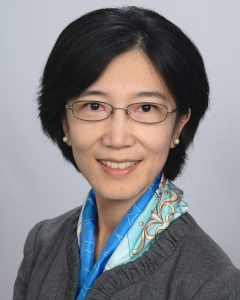By: Evelyn Yang Garland Edited by: Fang Sheng

Be a generalist and a specialist
I have often pondered the question of whether it is better to specialize in one area of translation (and interpretation) or to be a generalist with some knowledge of as many areas as possible. In formulating my ideas on the subject, I think of a friend of mine who went to a top law school. He asked his academic adviser what courses he should take to be competitive in financial law. His adviser told him, “Your competency grows like a tree. Try to develop as large and balanced a canopy as you can so that any future opportunity is within your reach, because you already have a branch extending in that direction. Don’t limit yourself to a narrow set of coursework.”
I find this advice wise for professionals in the fast-changing field of translation and interpreting as well. The long-debated question of whether it is better to be a generalist or a specialist in one’s profession may be implying a false premise that the two are utterly incompatible and one must choose to be one to the exclusion of the other. What I have observed is that translators and interpreters who have built solid, general foundations are often capable of excelling in almost any specialty. In some cases, the same person can be strong in multiple specialties at the same time.
When I say a solid, general foundation, I mean profound linguistic knowledge, a willingness to seek knowledge beyond narrow fields, excellent research skills, and willingness to learn from colleagues. Building this foundation takes time, and it often entails forgoing part of your current income. For example, you may choose to take courses, or perhaps your productivity will take a dip as you work on not-so-familiar subject matters, or you may have to sacrifice billable hours to read industry reports.
As translators and interpreters, we are always learning. We have to. Whether you are expanding your entire canopy or extending a particular branch may depend on factors such as the stage of your career and your outlook on future changes.
We should also keep in mind that major economic and technical changes can affect our profession in the future. The need for translators in one area of specialization may drop drastically while other areas experience growing demand.
Don’t let your background limit you
Your liberal arts background should not hinder you from becoming a technical translator. And your degree in science or engineering does not make you a lesser marketing translator.
Although it seems that many colleagues focus their translation work on the areas of their study in college or graduate school, I have seen a few exceptions. I have challenged translators with little technical experience to try patent translation. Some of them did very well after investing time and conducting diligent research. Similarly, I have seen colleagues trained in science produce sharp ad copy once they have put deliberate effort in developing creativity skills.
Having one specialty is great. Having multiple is even better. Whenever you can afford to invest in yourself and grow your canopy, don’t hesitate to do so. Knowing things from outside of your chosen field can never hurt; it can often enhance your ability to translate with style. For instance, an advertising translation for a technical product may be enhanced by a deeper than average understanding of science. A medical translation may be made more complete and helpful by knowledge of new social trends and cultural practices.
Explore different translation specialties before you decide which ones to pursue. But remember, your background is your floor, not ceiling. If you find an area attractive but outside of your background, don’t be shy to reach out to colleagues with experience to learn more about that area.
Final caveat
When I was starting out as a translator, a translation agency owner and veteran translator offered this advice at a workshop: “If you are based in the United States, don’t even think about offering English-into-Chinese translation. You have millions of low-price competitors from China. That’s where most of the work goes.” While that advice was very well-intentioned, it proved to be the opposite of what was in my best interest. Years later, I am thriving on translation, and approximately half of my translation work is from English into Chinese. I would be remiss if I do not also point out that there are many capable colleagues in China, whom I hold in the highest regard.
There are many paths to success in a profession as diverse as ours. It is almost impossible for any single person to see them all. What works well for someone else might not necessarily work for you. Vice versa.
So heed what your peers have to say, think for yourself, and follow every piece of advice with discretion.

Evelyn Yang Garland is an ATA-certified translator and credentialed conference and legal interpreter. She provides translation and interpreting services to some of the most prestigious clients in the United States, Europe, and Asia. Evelyn owns Acta Chinese Language Services, a firm that specializes in translation between Chinese and English.
Leave a Reply